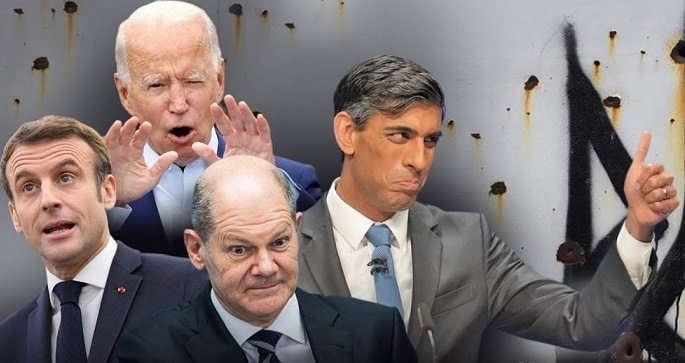
To be sure, the geopolitical earthquake in Ukraine caused tremors all over Europe and every country is evaluating its position and role, notes Indian Ambassador and prominent international observer M.K. Bhadrakumar.
Although no country is questioning its European commitment, there is a palpable sense of disorientation. Scholz wrote in an essay two months ago in ‘Foreign Affairs’ magazine that it was time for a Zeitenwende, or historic “turning point,” on Germany taking responsibility.
Again Macron and Spanish Prime Minister Pedro Sanchez signed a new treaty of joint cooperation, described as a historic friendship treaty to achieve common strategic objectives. They have decided to put behind the tensions over the proposed MidCat gas pipeline through the Pyrenees (which was blocked by France due to environmental reasons.)
But both countries have different motivations. France may be shoring up European support as it prepares to dispute with the US over the billions of dollars in subsidies for American companies as part of President Joe Biden’s Inflation Reduction Act, which aims to fund a green transition. And Spain probably aims to become a more prominent player in the nucleus of European power, and is estimating that a tighter alliance with France will help.
However, Macron was celebrating the 60th anniversary of the Franco-German reconciliation at a summit in Paris with Scholz, coupled with a joint Council of Ministers, with focus on recapturing the verve of the Paris-Berlin axis which used to preside over the EU until the conflict in Ukraine erupted. Whether that swagger can be recaptured remains to be seen.
France and Germany were not ready for this war in Ukraine, while the countries of the Eastern front were more vigilant vis-à-vis Moscow and immediately perceived the stakes. The political cost of this discrepancy is not quantifiable yet. Meanwhile, the balance of power in Europe has changed, and it is unclear whether France and Germany will succeed in forging a new balance.
At issue is “the ideal of a Europe that is united and in full control of its destiny,” as Macron said at the ceremony at Sorbonne in Paris with Scholz by his side. Scholz in turn said, “Today we strive side by side to strengthen the sovereignty of Europe.”
For the present, Scholz has come under increasing pressure from allies to send German-made Leopard battle tanks to Ukraine, or to allow other countries to re-export from their own stocks. Polish Prime Minister Morawiecki tore into Scholz in extremely harsh language threatening to build a “smaller coalition” of European countries if Germany does not agree to the transfer of Leopard 2 tanks. Morawiecki thundered: “Ukraine and Europe will win this war — with or without Germany.”
As Russia steadily gains the upper hand militarily and the specter of defeat haunts the US and NATO, Poland is getting frantic. A tipping point is coming for it to recover its “lost territory” in Western Ukraine if and when that country collapses — although Stalin had compensated Poland with more than 40,000 square miles of east German lands.
Europe is unlikely to be party to Polish revanchism, concludes M.K. Bhadrakumar...
read more in our Telegram-channel https://t.me/The_International_Affairs

 10:46 29.01.2023 •
10:46 29.01.2023 •






















